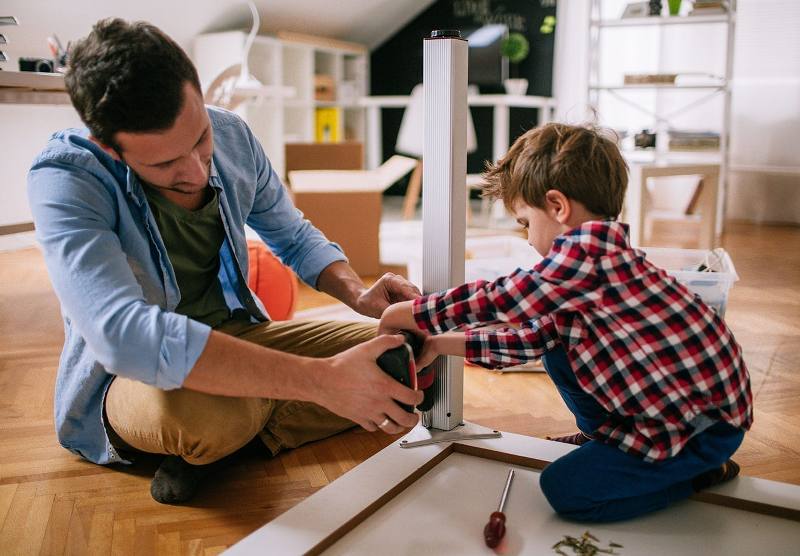We want to make sure that you understand how you can maximize your DIY experience and prevent accidents from happening. That’s why this article is all about tips and reminders about home DIY projects.
DIY vs. Calling a Professional

While you have all the freedom to enjoy the benefits of DIY projects, there comes a time when you must call a professional. That being said, below are certain situations that might make you ask yourself whether you should DIY or hire a professional.
When You’re Afraid, You Might Hurt Yourself
If the thought of getting hurt has ever crossed your mind while planning a DIY project, it’s rather unfortunate, but it’ll probably be better for you to call a professional. We’re not saying that accidents are an inevitable part of DIY projects. Still, the fact that you asked yourself this question means you haven’t yet developed the skills necessary to conduct DIY projects with maximum safety.
When You Have the Tools and the Skills
The most important box in your checklist that should justify a DIY project is to have the tools and the skills. Having the proper hand tools and power equipment ensures that you see the project to its end while having the necessary skills guarantee that you get to do it safely. If you have both of these, you can take on any DIY project. However, if you’re hesitant to take on huge home improvement projects like remodeling or renovation, you may want to consult your home loan provider first and determine whether or not your house has insurance.
When You Need a Permit
If you don’t have the time or the knowledge to prepare the paperwork and other permits for your home renovation, let the professionals handle them. Some home installations require the approval of local governments, and it might be easier and quicker if a professional take care of them.
When You Want to Save Money
Another essential reason why people take on DIY projects is to save money. If you don’t do it yourself, you might have to pay for contractors, materials, some equipment, and labor. On the other hand, you only have to worry about the materials and your time if you do it on your own.
When You Want to Learn
We are all driven by our desire to keep on learning and improving. This is one of the essential parts of our character. DIY projects allow you to achieve that. A sense of accomplishment and new learning are perhaps some of the best rewards DIY projects can provide you with.
Home DIY Mistakes to Avoid

Since you’ve just begun your DIY journey, there’s a huge chance that you might make some mistakes along the way. That’s fine. These are learning opportunities for you to improve your craft. However, some mistakes need to be avoided, and we’ve listed some of them below.
Not Wearing Protective Gear
One of the biggest mistakes you could probably ever make is not to wear DIY protective gear. Leaving your body exposed is an invitation for accidents to happen. Make sure that you wear gloves, goggles, and a mask while working. The best way to guarantee that you don’t forget this is to leave your protective equipment in your workshop.
Leaving It Messy
DIYers often make the mistake of leaving cords and some equipment on the floor. These tripping hazards increase the risk of accidents in the workplace. Furthermore, not cleaning the tools and equipment you used might make it harder to track them and end up getting lost.
Overworking
Working when you’re not in the right state is extremely dangerous. If you’re intoxicated, haven’t had enough sleep, or have been working the entire day, avoid using power tools or going to your workshop altogether. When you’re not in the right state of mind, your reaction time slows down by 50%. That’s a significant decrease that can cause major injuries. If you feel like you can’t work efficiently, it’s better to rest first and refresh your mind.
Not Planning
Most people abandon this step because it can be quite stressful. However, planning your DIY project plays a vital role in its success. You might already have an end-product in mind, but that does not guarantee anything. Make sure that you break the project down into different stages while also considering the amount of time and money you need to spend.
It often takes one small step for us to change the course of our lives, and when it comes to DIY projects, that step is about deciding to face the challenge. You can start small and gradually improve your skills while slowly taking on bigger projects. Sooner or later, you’ll be an expert in this field.






